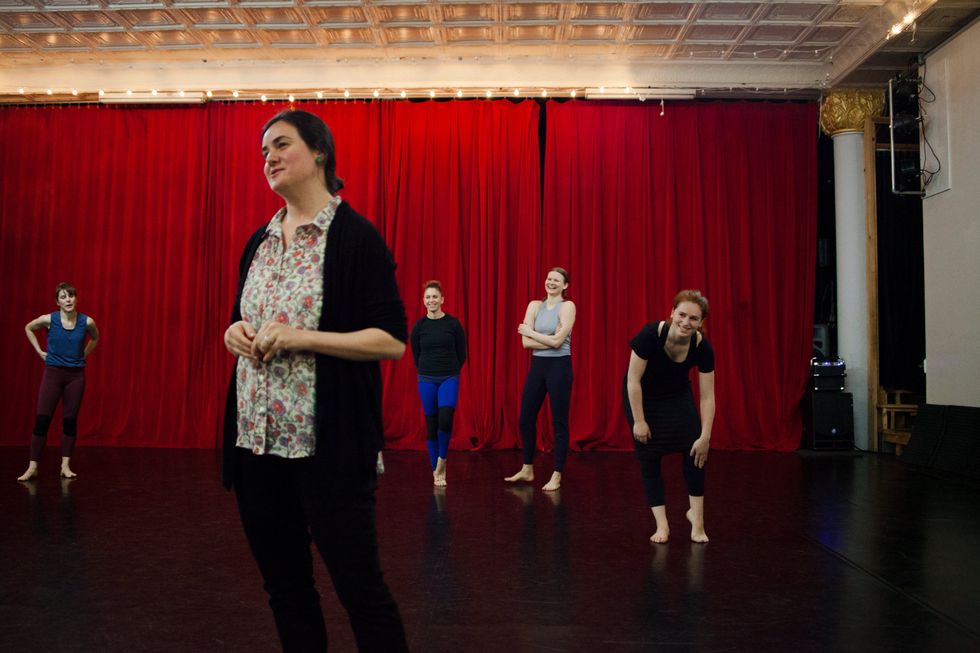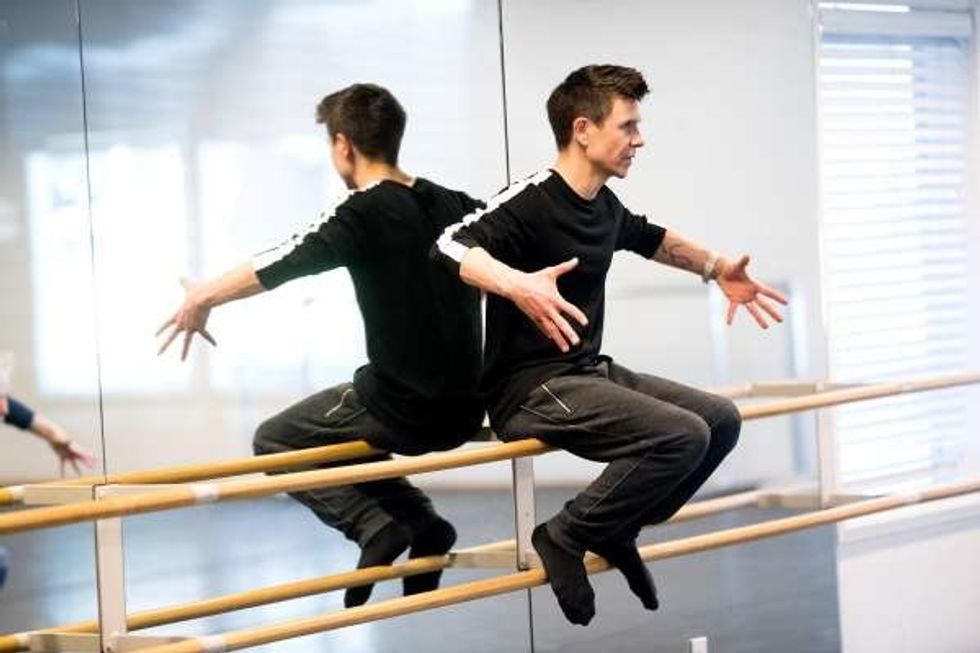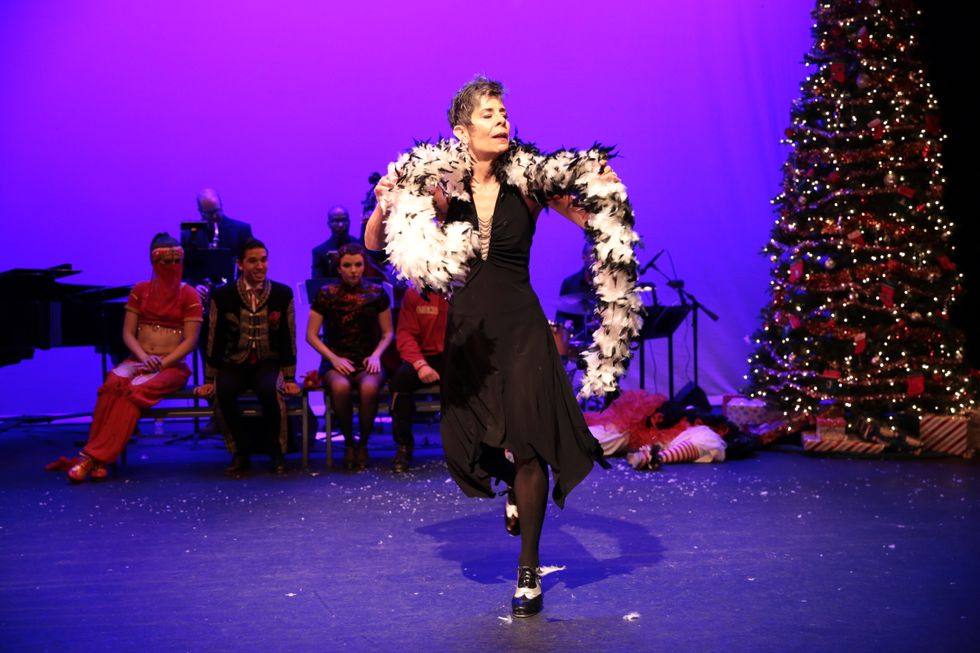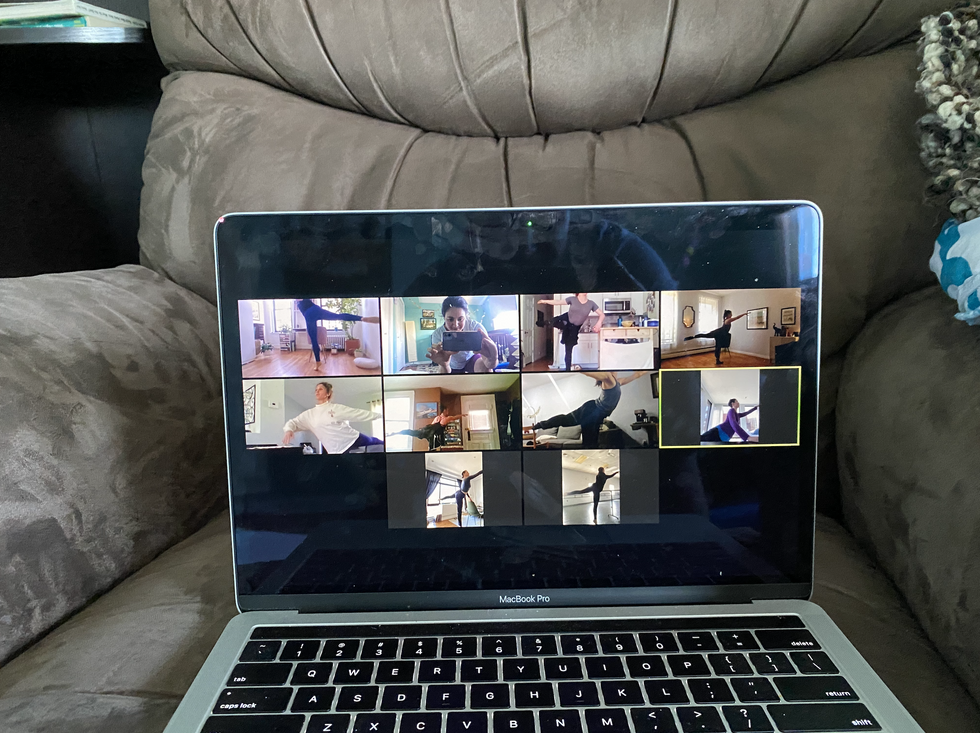How Dance Companies Are Coping With the New Normal
Covid-19 and the resulting shelter-in-place orders nationwide have been devastating to the dance community. Canceled performances, studio closures and layoffs have left dance artists everywhere wondering how they’re going to maintain their craft and livelihood.
Feeling that especially acutely are smaller local companies whose limited resources leave them especially vulnerable. Dance Magazine checked in with three artistic directors to see how they’re handling life in the age of coronavirus.

Courtesy Grossman
Ariel Grossman, artistic director of Ariel Rivka Dance in Jersey City, New Jersey
How has COVID-19 changed your season so far?
We were planning to have our 13th annual season at the end of May. We haven’t officially canceled it yet, but it probably won’t happen in the way it was supposed to. We had been working for a year now on three new pieces and they are ready to go. I know we’ll be able to share them eventually, but it’s hard to let go of this week we’ve been aiming for.
What is your game plan for the coming weeks and months?
We are going to keep dancing as much as we possibly can online. We had an open rehearsal on March 8, and have some footage from that we’re hoping to share. We recently had our first “Warm Up Wednesday” in which one of the dancers shows their personal warmup. We’ve been showing clips of performances and having dancers share how they’re taking care of themselves physically. On April 10, we’re planning to show an online performance of a piece we did outside.
We’re also having a few of the dancers help us out administratively—with social media and doing upkeep on the costumes. We’re hoping to premiere our new works sometime in late 2020.
What kind of work are you able to do from home?
I have been going through our archives to determine which other pieces we can bring back. We’ll keep rehearsing and doing online workshops. I hope to eventually serve underserved communities, but we’ve had to take a step back from that for now.
Is the company still in touch regularly?
In the first couple weeks, I did a lot of phone calls and texting with my dancers because they were having a hard time. Now we’re doing company class and rehearsal one day a week. It’s been hard on Zoom, but it has felt productive.
Have you been able to offer your dancers or staff any pay?
We are incredibly fortunate in that the board initiated an emergency relief fund in the first week. Making rent is a serious concern for some of our dancers. This fund helps alleviate some of those worries. We’re researching grants and paying dancers for the 1-2 hours of weekly rehearsal and the admin work they’re doing.
When not working, what are you doing to stay busy?
I work at a school in Manhattan so I do Zoom meetings in the mornings and online movement classes that parents can do with their kids. I also have two kids—Max is 3 and Eva is 6. I’m busy!
Any advice?
I think it’s important to connect with people individually as well as a group. It doesn’t need to be every day, but there are a lot of things people may not want to share with a group.

Robert Dekkers, artistic director of Post:Ballet in Berkeley, California
How has COVID-19 changed your season so far?
Post:Ballet had to cancel a performance at the Berkeley Art Museum and a tour to Palm Springs scheduled for this month, and we’ve had to postpone the performances of Lyra, a new production that was scheduled to premiere this summer.
What is your game plan for the coming weeks and months?
Since we made the decision to postpone the premiere of Lyra, we decided to use the extra time to continue working with YAKfilms and create a series of short films inspired by Lyra. Shifting our creative process to focus on a film version of the work, we’re hoping to ultimately share it with more people.
What kind of work are you able to do from home?
I’ve used this time to organize the videos and photos that archive the first 10 years of Post:Ballet. Looking back on everything has been a really positive exercise. I’m grateful for this time to consider who it’s impacting, and reflect on what I want to do moving forward. I’ve also been storyboarding some projects that are coming up in the next two years, daydreaming about future collaborations, and of course, writing grant proposals!
Is the company still in touch regularly?
I’ve been teaching open classes through Facebook live that the company dancers (and anyone interested) are invited to take. “Seeing” the dancers in class has been a great way to stay connected, as has the company text thread.
Have you been able to offer your dancers or staff any pay?
We were able to offer the dancers a stipend when our April performances were canceled, but we weren’t able to pay the full amount they would’ve received.
What’s been the biggest challenge?
I like to have everything planned out, to have my schedule set and the company’s projects lined up years in advance. Letting go of that has been a difficult but important growing experience.
When not working, what are you doing to stay busy?
I’m eating dinner with my husband every night (for the first time in 10 years), sleeping more, watching movies, catching up with people I care about, journaling and walking, hiking or riding my bike through parks, forests and empty streets. I’m enjoying the shift in pace. I feel grateful for this moment to realign my perspectives and priorities.
Any advice?
My mom told me on the phone recently, “Nothing’s going back to the old normal,” which means that we have a unique opportunity to define a new normal. I’m excited to see what new forms we create, what stories are told and what mediums are integrated into dance in the months and years ahead.

Acia Gray, artistic director of Tapestry Dance Company in Austin, Texas
How has COVID-19 changed your season so far?
Tapestry had to cancel its premiere of Looking Forward/Looking Back, a mixed repertory concert. We also had to cancel our in-school outreach programming. Our 20th Annual Soul to Sole International Tap Festival is scheduled for June 10-14—we will decide whether to cancel on May 1.
What is your game plan for the coming weeks and months?
We are blessed to be funded through The City of Austin Cultural Contracts, The Texas Commission on the Arts and the National Endowment for the Arts. The Texas Commission on the Arts has adjusted their guidelines to enable us to support our artists and administrators during this time. The City of Austin is also working on how to handle the situation.
What kind of work are you able to do from home?
Staying in touch with our audiences, patrons and academy students, filling out SBA applications; touching base with grant administrators and trying to find ways to be creative online. We are posting past Tapestry performances and working on our schedule for next season. Members of the company are posting free class content through Facebook, and people have asked me to do so as well, but it’s against my nature. The energy and sounds in a studio are where I live and work from. I have to be there. Otherwise, it’s just steps to me—words without a purpose.
Is the company still in touch regularly?
We are making a point to touch base. I was hopeful a couple of weeks ago that we would be able to meet up for classes, work on some classic choreography and experiment with new material, but alas.
Have you been able to offer your dancers or staff any pay?
Yes, all of Tapestry’s dancers are receiving their monthly pay at least through the end of this season’s contract in mid-June. My goal is to continue those payments through to the next season which starts mid-August. I’m crossing my fingers that funding and revenue will flow and we can start our return back to full operations.
What’s been the biggest challenge?
Cancellation of all operations. Also, this season was our first after losing our studio space almost five years ago. We had just re-opened our new home this past August and were feeling a return to normalcy when the coronavirus hit.
When not working, what are you doing to stay busy?
Taking walks with my wife around the neighborhood, taking pictures and reading. Unfortunately, also watching too much news!
Any advice?
Stay focused on the art and your artists. Your artists are who we need to nurture. Stay present! Tapestry has survived through many hard situations over the past 30 years and I truly believe if we continue to stay honest and do good work from the heart, we will survive. Do everything you can to help educate, communicate and bring beauty and honesty to as many people as you can.




